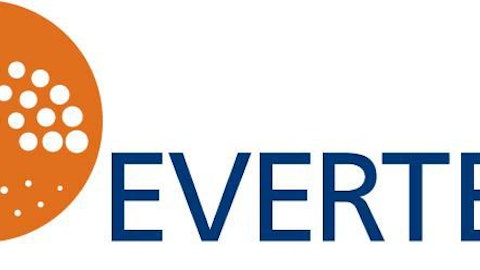Some investors think that currency fluctuations are the worst part of investing foreign stocks, but I think these fluctuations are great opportunities. Why limit yourself to just one currency when it can go down easily? Not to sound like I’m preaching American declinism, but US won’t be on top forever and domestic companies aren’t necessarily the best ones going. The following might be some good ways to hedge your bets on the dollar and the US.
Growing like a magic mushroom

Businesses tend to be more stable, as evidenced by Banco Latinoamericano Comerc Exterior SA (NYSE:BLX)’s awesome 58.6% profit margins. Based in Panama, many of the company’s employees are even native English speakers — good for investor relations. On top of those good reasons to own Banco Latinoamericano Comerc Exterior SA (NYSE:BLX), the company pays a 4.7% dividend yield and is only trading for around 13 times earnings.
This is normally when I trash talk some scandal or mention how there’s a horrible dark spot on the company, but here I have nothing. Other than a hard-to-spell name that translates into a fairly generic “Foreign Trade Bank of Latin America” and a market cap of under $1 billion — which some could call a mark of instability if times get tough again — Banco Latinoamericano Comerc Exterior SA (NYSE:BLX) is just a good company. When the Fool’s rules allow it, I may very well pick up a few shares myself.
Like a mammoth
Credit Suisse Group AG (ADR) (NYSE:CS) is the company that built much of Switzerland’s modern infrastructure. One of the least harmed by the Great Recession, Credit Suisse Group AG (ADR) (NYSE:CS) is also a popular bank if you want to hide your fortune from the tax man. Aside from the romance of it all, this bank provides a lot of the useful services most retail banks do, and is large enough to withstand just about anything with its $47 billion market cap.
Turning 11.2% trailing profit margins, Credit Suisse Group AG (ADR) (NYSE:CS) is secure in continuing to make money. The company’s even nice for the fact that it’s only trading for about its book value. Not bad for having the built-in exposure to almost every currency in the world through the company’s depository offerings and being traded on SIX, the Swiss stock exchange.
Credit Suisse Group AG (ADR) (NYSE:CS) isn’t quite perfect, though. The company only pays a 0.4% dividend yield, which is kind of a “why bother” for the average investor. Also, the company is trading at around 17 times its earnings, putting it in the average range for stocks traded on the big board. Also, the $47 billion market cap suggests stability, but it’s awfully hard to grow such a large company at high speed. So if you’re looking for a strong growth company you might want to look elsewhere. There’s nothing bad about Credit Suisse Group AG (ADR) (NYSE:CS), but the goods don’t make it that awesome as a growth, value or income play.
Great but not perfect
Westpac Banking Corp (ADR) (NYSE:WBK) is the second-biggest bank in New Zealand, and has also worked to become highly integrated in how it displays account information to its customers. The company has a huge $86 billion market cap, suggesting serious stability. As well, Westpac Banking Corp (ADR) (NYSE:WBK) has income investing potential because of its 6.2% dividend yield. The company is like a rock partially because it turns 36.5% profit margins, and it actually gets better. You get a slight margin of safety versus the S&P 500 because Westpac is only trading for around 13 times its trailing earnings.
Of course, things aren’t perfect. Economic conditions in Australia and New Zealand have been great for decades, with the Australian economy being the most prosperous in the world since the ’60s and the least affected by the last several recessions. However, these conditions may not persist despite having a history of doing so. Also, Westpac did take some flak a few years ago for accepting the secret bailout from the Federal Reserve in 2008 and 2009, indicating that it was affected by the Great Recession more than it wanted to admit publicly.
Overall I would rate Westpac a solid buy, but you should be aware that the company has its risks.
The Foolish bottom line
The foreign-banking sector has much room for profiting your portfolio. Exposure to foreign currencies is a definite plus. There are also some good deals here. However, there may be limits on the amount of real growth you can get over the short term.
I own none of the companies mentioned herein.
The article Foreign Money Center Banks and Minting Your Fortune originally appeared on Fool.com and is written by Chris Hodge.
Chris is a member of The Motley Fool Blog Network — entries represent the personal opinion of the blogger and are not formally edited.
Copyright © 1995 – 2013 The Motley Fool, LLC. All rights reserved. The Motley Fool has a disclosure policy.




